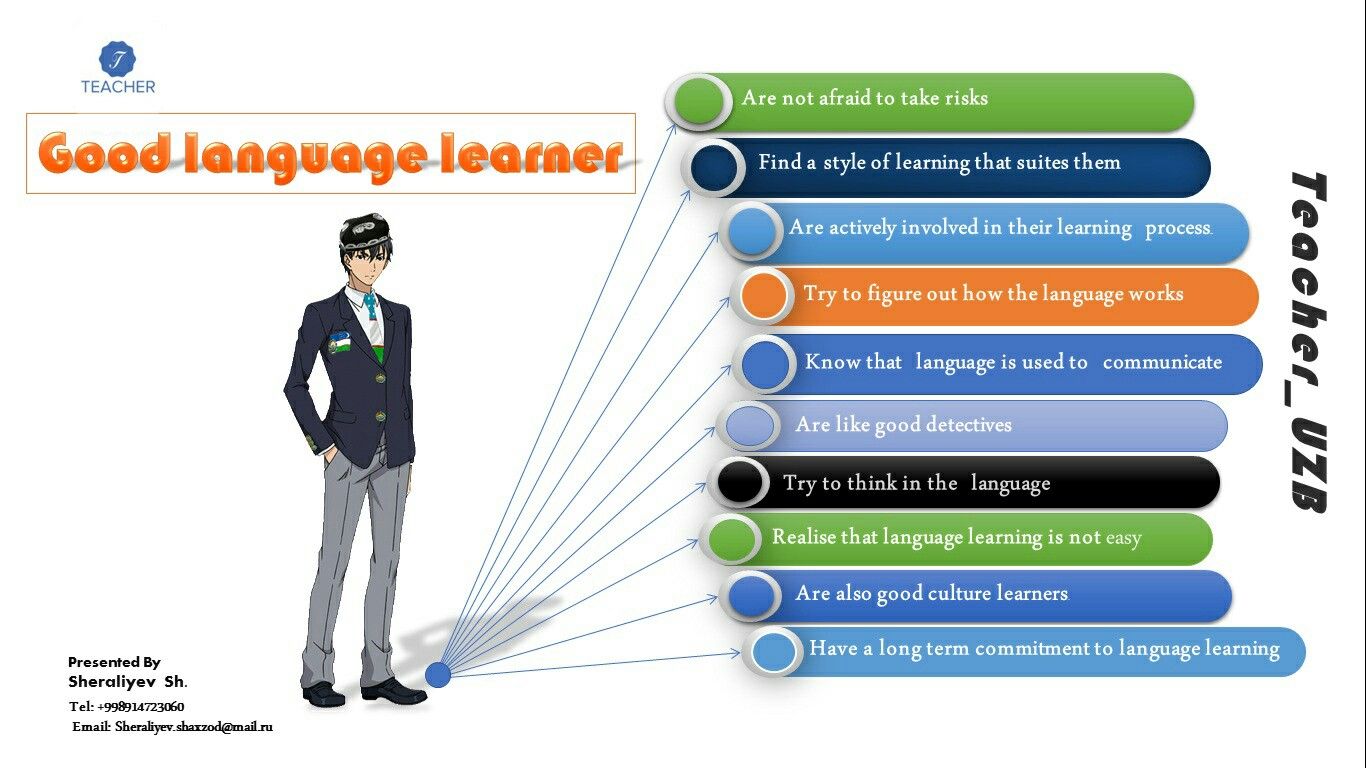STUDY SKILLS
Aperçu des sections
-
-
Forum
-
-
-
Course Title: Study Skills
Teaching Unit: Methodology
Level: 1 st year LMD
Coefficient: 02
Credits: 04
Average Teaching Hours: 45 hours (15 weeks)
Number of Sessions per Week: 2 sessions
Course type: TD
Evaluation: continuous assessment 50% + Written exam: 50% -
-
-

-
this is the first lesson in Study Skills. Learners are presented to a number of essential characteristics that would make them good and successful language learners.
-
-
DevoirOuvert le : samedi 14 octobre 2023, 00:00
-
-
Forum
-
-

-
-
Fichier
-
-
Atelier
-
-
-
Fichier
-
-
Forum
Think about any additional good/effective study habits and mention the ones you use the most ?
-
-

-
Atelier
-

-
-
-
Fichier
-

-
-
Discuss the meaning of time management, why it is important and how you can both improve and use your skills during the learning process.
-

-
-

-
-
-
Fichier
-
-
Test
1.Complete the following list with tips that have worked for you in designing goals and committing to them.
1. Discussing goals with a critical friend may help in the process of designing realistic goals.
2. Writing goals down and keeping them visible can be a reminder of the important things that should be done to reach them.
3. ………………………………………………………………………………
……………………….. 4. ………………………………………………………………………………
……………………….. -
-
Test
Do the following objectives follow the SMART system? What is the problem with the ones that do not? How can you improve them?
Goal
Your Comment
Improved goal
I will do well in all my classes this semester.
I will revise my lessons 30 mins every day to get an average of 14/20 in my first semester exams.
I will get a good job when I graduate.
I will finish writing my written expression assignment sometime soon.
-

-

-
-
-
-

-
Fichier
-
-
Fichier
-
ForumLook for other types of dictionary?Why do we use dictionary?
-

-
-
-
-
Fichier
-

-
-
Atelier
-
Fichier
-
-
Chat
-

-
-
-
Ø Alyoucef, H. S. (2005). Teaching reading comprehension to ESL/ EFL learners. The Reading Matrix, 5(2), 143-154.
Ø Austin, T. & Vancouver, B. (1996). Goal constructs in psychology: Structure, process, and content. Psychological Bulletin. 120, 338–375.
Ø Awana, Rachana. Examination in open classrooms. YRUS. Agricultural engeneering IBL Skill trainer. @teachPro.com
Ø Baudoin, E. M., Bober, E. S., Clarke, M. A., Dobson, B. K., & Silberstein, S. (1994).Reader's choice international Edition (4th Ed.). Michigan University Press.
Ø Behabadi, F., & Behfrouz, B. (2013). Learning styles and characteristics of good language learners in the Iranian context. International Journal on New Trends In Education and their Implications. 4(2), 41-49.
Ø Boulay, D. (2009). Study for Dummies. Chichester, West Sussex (England): John Wiley & Sons, Ltd
Ø Brown, D. (2002). Strategies for Success: A practical Guide to Learning English. New York: Longman
Ø Cale Learning Enhancement. Gaol Setting. Available at: https://inside.ewu.edu/calelearning/psychological-skills/goal-setting/
Ø Cambridge Assessment International Education. (2019. Getting Started with Metacognition. Available at: https://cambridge-community.org.uk/professional-development/gswmeta/index.html
Ø Chamot, A. U. (2005) Language learning strategy instruction: current issues and research .Annual Review of Applied Linguistics, 25 (2005), 112-130.
Ø Cochran, W. & Tesser, A. (1996), “The ‘What the Hell’ Effect: Some Effects of Goal Proximity and Goal Framing on Performance,” in L. Martin & A. Tesser (Eds.), Striving and Feeling: Interactions among Goals, Affect, and Self-Regulation , (pp. 99–120). Mahwah, NJ: Erlbaum
Ø Cohen. A. D. (2003). The learner’s side of foreign language learning: where do styles, strategies, and tasks meet? IRAL, 41 (4). 279-291.
Ø Corporate Finance Institute. (2023). Time Management. Available at: https://corporatefinanceinstitute.com/resources/management/time-management-list-tips/
Ø Cottrell, S. (2008). The Study Skills Handbook (3rd ed). New York: Palgrave Macmillan Ltd.
Ø Drew, C. (2023). 13 Examples of Metacognitive Strategies. Available at: https://helpfulprofessor.com/metacognitive-strategies/
Ø Duckworth, A.L., Peterson, C., Matthews, M.D., & Kelly, D.R. (2007). Grit: Perseverance and passion for long-term goals. Journal of Personality and Social Psychology, 92 (6), 1087–1101. https://doi:10.1037/0022-3514.92.6.1087.
Ø Duckworth, A.L., Peterson, C., Matthews, M.D., & Kelly, D.R. (2007). Grit: Perseverance and passion for long-term goals. Journal of Personality and Social Psychology, 92 (6), 1087–1101. https://doi:10.1037/0022-3514.92.6.1087.
Ø Ebele U, F. & Olofu, P. A. (2017). Study Habit and Its Impact on Secondary School Students’ Academic Performance in Biology In The Federal Capital Territory, Abuja. Academic Journals. Vol. 12, N (10). 583-588.
Ø Ellis, D. (2003). Becoming a Master Students (10th ed). Boston: Houghton Mifflin Co.
Ø Flavell, J. H. (1979). Metacognition and cognitive monitoring: A new area of cognitive-developmental inquiry. American Psychologist, 34(10), 906.
Ø Grabe, W. & Stoller, F. (2019). Teaching and Researching Reading. New York: Routledge
Ø Gürcü K.,E. & Demiral, H. (2009).the library use habits of student teachers . Procedia Social and Behavioral Sciences. N 1. 2233–2240
Ø Hardan, A. (2013). Language learning strategies: a general overview. Social and Behavioral Sciences, 106(2013), 1712 – 1726
Ø Harmer, J. (2001). The Practice of English Language Teaching (3rd ed). Pearson Educational Lilted
Ø Harpe, T. & Row, A. (2009). Effective Study Habits. Retrieved
from www.arbeitsblaetter.com.Ø How to Study. Setting Goal. Available at: https://www.how-to-study.com/study-skills-articles/setting-goals.asp
Ø John, M. (2010). Students Study Habits and Styles. Retrieved
from www.worldwidelearn.com.Ø Katelyn F (2013). College Study Habits News. Retrieved
from www.studymode.com/essaysØ Kumar, S. (2015). Study Habits of Undergraduate Students. International Journal of Education and Information Studies. 5(1).
Ø Likitrattanaporn, W. (2018). A Study of Language Learning Strategies for Practical Use through the Process of Cooperative Learning. International Journal of Educational Technology and Learning, 3(1), 35-44
Ø Longman, D. G., & Atkinson, R. H. (1999). Reading enhancement and development (6th ed.). Minneapolis/St. Paul: Wadsworth Publishing Company
Ø Lorver, T, R. (2015). Introduction to the use of library for schools, colleges, polytechnics and universities. Retrieved from https://www.researchgate.net/publication/342303750_INTRODUCTION_TO_THE_USE_OF_LIBRARY_FOR_SCHOOLS_COLLEGES_POLY
Ø Lovric, K. & Howarth, D. Goals and Priorities. Available at: https://usq.pressbooks.pub/academicsuccess/chapter/goals-and-priorities/
Ø Maitland, L. E. (2000). Ideas in Practice: Self-Regulation and Metacognition in the Reading Lab. Journal of Developmental Education, 24(2), 26-36.
Ø Marulis, L. M., & Nelson, L. J. (2021). Metacognitive Processes and Associations to Executive Function and Motivation During a Problem-Solving Task in 3–5-Year-Olds. Metacognition and Learning, 16(1), 207-231.
Ø McMillan, K. &Weyers, J. (2013). The Study Skills Book. London: Pearson
Ø Menik, K. S., & Yuhendri, L. V. (2016). Analysis Characteristics of Learning Styles VAK (Visual, Auditory, Kinesthetic): Student of Banks and Financial Institutions Course. International conference on education for economics, business, and finance. ISSN 2540-7481.
Ø Ministry of Higher Education and Scientific Research (MESRS):https://www.mesrs.dz/
Ø Ministry of National Education: http://www.education.gov.dz/fr/systeme-educatif-algerien/
Ø Nikki, K. (2013). Common Bad Study Habits. Retrieved from www.newa4j
ax.comØ Nordquist, R. (2019). How to take Better Notes during lectures, Discussions, and Interviews. Available at: https://www.thoughtco.com/note-taking-research-1691352
Ø Norman, E., & Furnes, B. (2016). The Concept of “Meta Emotion”: What Is There to Learn from Research on Metacognition?. Emotion Review, 8(2), 187-193.
Ø Nunan, D. (2000), Language Teaching Methodology. Harlow, Pearson Education Ltd.
Ø O’Malley, J. M., & Chamot , A. U. (1990). Learning Strategies in Second Language Acquisition. Cambridge University Press, Cambridge.
Ø Orr. F. (1992). Study Skills for Successful Students. Australia: Allen & Unwin
Ø Oxford, R. L. (1990). Language learning strategies: what every Teacher should know. University of Alabama, Boston: Heinle & Heinle Publications.
Ø Oxford. R. L. (2003).Language Learning Styles and Strategies: Concepts and Relationships. IRAL, 41 (4) (2003), 271-278.
Ø Pauk, W. (2005). How to Study in College. Boston: Houghton Miffin Co.
Ø Said, L . Exam Preparation Strategies and Concerns of University Students: Gender and Open Access Vs Regulated System Effects. University Hassan II : Casablanca. Morocco
Ø Schraw, G. (1998). Promoting General Metacognitive Awareness. Instructional Science, 26, 113-125. doi:10.1023/A:1003044231033
Ø Smale, B. & Fowlie, J. (2015). How to Succeed at University: An Essential Guide to Academic Skills, Personal Development & Employability. University of Brighton,UK: SAGE Publications Ltd.
Ø Stoltz, P. G. (2015). Leadership Grit. Leader to Leader, 78, 49–55. https://doi-org.ezproxy.usq.edu.au/10.1002/ltl.20205
Ø Sword, R. (2021). Metacognition in the Classroom: Benefits and Strategies. Available at: https://www.highspeedtraining.co.uk/hub/metacognition-in-the-classroom/
-
-
-
Fichier
-



